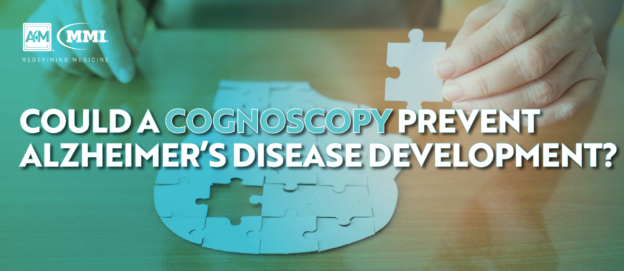The primary issue that consumes the majority of the burden of healthcare costs in the United States is chronic disease: specifically, as of late, brain diseases and disorders. While primary care providers have long faced the struggle of determining how to implement best practice care for patients diagnosed with chronic diseases, recent studies indicate that almost half of the entire U.S. population has at least one chronic health condition. Statistics designate these health care treatments costs to account for 86% of cumulative national healthcare spending, and the CDC reports that chronic conditions are the leading causes of death and disability in the country.
While recent headlines continuously account for the monetary implications of these disorders, they also impact the very fabric of our society, as these diseases are not confined to one group of people, a specific geographic area, or a certain type of lifestyle: disorders of the brain impact not only your patients, but people you encounter each day. Moreover, the social and financial costs of these diseases are severe.
Roughly 142 Americans die from opioid overdoses each day; 2016 saw 59,000 drug overdose deaths: the highest ever on record. The economic impacts are severe, exacting more than $740 billion in annual costs.
The number of Americans living with Alzheimer’s is currently at 5 million; by 2050, this number could rise as high as 16 million—costing the nation as much as $1.1 trillion.
Cases and diagnoses of ADHD have been increasing dramatically in the past few years, with the CDC reporting that 11 percent of American children have the attention disorder. The economic expenses range between $143 to $266 billion each year.
More than 3.5 million Americans live with an autism spectrum disorder; the prevalence of autism in U.S. children increased by almost 120% from 2000 to 2010, making it the fastest-growing developmental disability. Autism services cost between $236 and $262 billion each year.
These diagnoses are multifaceted, nuanced, and complex. In addition to a myriad of doctor’s visits, medical jargon, and an abundance of information, patients and their caretakers must quickly learn to navigate the healthcare system in order to identify the necessary and available services and treatments. These processes require time and resources, committed motivation, and a wealth of support. In order to facilitate education surrounding brain diseases and disorders, the A4M/MMI 26th Annual Spring Congress, taking place at The Diplomat Beach Resort & Spa in Hollywood, Florida from April 13-14, will focus on brain diseases and disorders: the most current and cutting-edge topics in the landscape of modern medicine.
Keynote speakers include Dr. Daniel Amen, Dr. Rudolph Tanzi, Raun K. Kaufman, and Dr. Brennan Spiegel. Renowned double-board certified psychiatrist, educator, international lecturer, and New York Times bestselling author Dr. Amen is widely regarded as one of the world’s foremost experts on the application of brain imaging science to clinical practice; his nationwide clinics have the world’s largest database of functional brain scans relating to human behavior, totaling 73,000 scans on patients from 90 countries.
Dr. Rudolph Tanzi serves as the Vice-Chair of Neurology and Director of the Genetics and Aging Research at Massachusetts General Hospital, and the Joseph P. and Rose F. Kennedy Professor of Neurology at Harvard Medical School. Co-discoverer of three of the first Alzheimer’s disease genes, Dr. Tanzi has identified several other genes through his direction of the Alzheimer’s Genome Project—receiving the highest awards in his field, including TIME’s 100 Most Influential People in the World.
Raun Kaufman is the author of the book Autism Breakthrough: The Groundbreaking Method That Has Helped Families All Over the World. As a young boy, Kaufman was diagnosed with severe autism. His parents developed the Son-Rise Program, which ultimately enabled Kaufman to recover from his autism with no residual traces. Kaufman currently serves as Director of Global Education for the Autism Treatment Center of America, and holds a degree in Biomedical Ethics from Brown University.
Dr. Brennan Spiegel is the Director of Health Services Research for Cedars-Sinai Health System and Professor of Medicine and Public Health at UCLA, where he teaches digital health science, health analytics and health economics.
At A4M/MMI, we believe that peer-to-peer connections, in conjunction with the latest clinical education, can spur social change—ultimately transforming care and enhancing patient outcomes. Just as spring represents rebirth and rejuvenation, A4M/MMI’s Spring Congress will focus on the concept of ‘brain awakening:’ renewing your understanding of the complex world of the mind, and finding collaborative solutions together. As Leonardo da Vinci aptly stated: “Learning never exhausts the mind.”

